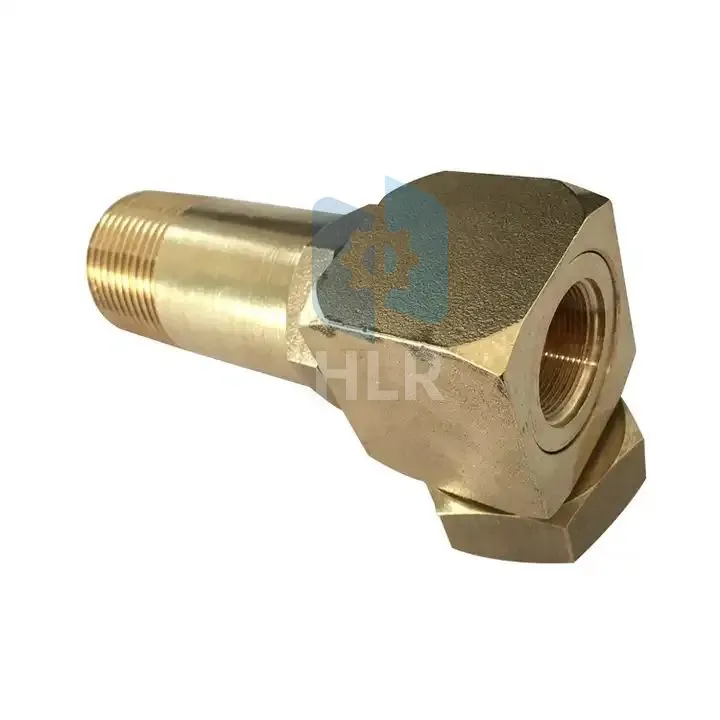An Introduction to Alloy Steel Casting: Properties and Applications
2024-09-10
Alloy steel casting is a pivotal process in modern manufacturing, providing a versatile material with excellent mechanical properties for various industries. Combining steel with other elements such as chromium, nickel, or molybdenum, alloy steel offers enhanced strength, hardness, and corrosion resistance. In this blog, we will dive into the basics of alloy steel casting, its key properties, and its wide range of applications.

1. What Is Alloy Steel Casting?
Alloy steel casting is the process of pouring molten alloy steel into molds to create complex shapes and components. Alloy steel is produced by adding elements such as carbon, manganese, chromium, nickel, or molybdenum to standard carbon steel, which enhances its properties. After cooling and solidifying, the cast metal is machined and finished to meet specific performance standards.
2. Key Properties of Alloy Steel Casting
The addition of alloying elements in steel greatly influences the mechanical properties, making alloy steel casting ideal for demanding applications. Key properties include:
- Increased Strength: Alloying elements such as chromium and nickel increase the tensile strength of the steel, making it more durable and suitable for high-stress environments.
- Hardness: The hardness of alloy steel is improved by adding carbon, molybdenum, and vanadium, which help resist wear and tear, extending the lifespan of the components.
- Corrosion Resistance: Chromium in alloy steel offers excellent corrosion resistance, which is crucial for components used in harsh or corrosive environments like marine, oil, and gas industries.
- Heat Resistance: Some alloy steels, particularly those with added molybdenum and vanadium, maintain strength and hardness even at high temperatures, making them ideal for components exposed to heat, such as engine parts and furnace linings.
- Toughness and Ductility: Alloy steel retains good toughness and ductility, meaning it can absorb shock and deform under stress without fracturing. This property is important for structural applications in construction and machinery.
3. Common Alloying Elements
The specific elements used in alloy steel casting can vary depending on the desired properties. Some common alloying elements include:
- Chromium: Enhances corrosion resistance and hardness.
- Nickel: Improves toughness and strength.
- Molybdenum: Increases strength and heat resistance.
- Vanadium: Improves wear resistance and hardness.
- Carbon: Increases hardness but reduces ductility in higher concentrations.
4. Applications of Alloy Steel Casting
Alloy steel castings are essential in a wide range of industries due to their versatility and high performance. Some common applications include:
- Automotive Industry: Alloy steel castings are used in critical automotive components such as engine blocks, gearboxes, and suspension systems, where strength, durability, and heat resistance are essential.
- Construction Industry: Alloy steel is widely used for making structural components, beams, and reinforcements due to its high strength-to-weight ratio and resistance to wear and corrosion.
- Aerospace Industry: High-strength and lightweight alloy steel castings are used in aircraft engines, landing gears, and other parts that require toughness and heat resistance.
- Oil and Gas Industry: Alloy steel is crucial for components such as valves, pumps, and drill heads, which operate in corrosive and high-pressure environments.
- Power Generation: In power plants, alloy steel castings are used for turbine blades, boilers, and other components that must withstand extreme heat and pressure.
5. Advantages of Alloy Steel Casting
The benefits of using alloy steel castings include:
- Customization: The alloying elements can be tailored to meet specific requirements, making alloy steel casting highly adaptable.
- Cost-Effectiveness: Alloy steel offers a balance of cost and performance, providing excellent durability and strength without the high price tag of some other metals like titanium.
- Versatility: It can be used in various industries, from automotive and aerospace to oil and gas, thanks to its wide range of mechanical properties.
Conclusion
Alloy steel casting provides a high-performance, versatile solution for industries that require durable, strong, and corrosion-resistant materials. By understanding the unique properties of alloy steel and its applications, manufacturers can optimize their processes and ensure the production of high-quality, long-lasting components. Whether in automotive, aerospace, or construction, alloy steel continues to be a material of choice due to its impressive mechanical properties and adaptability.


